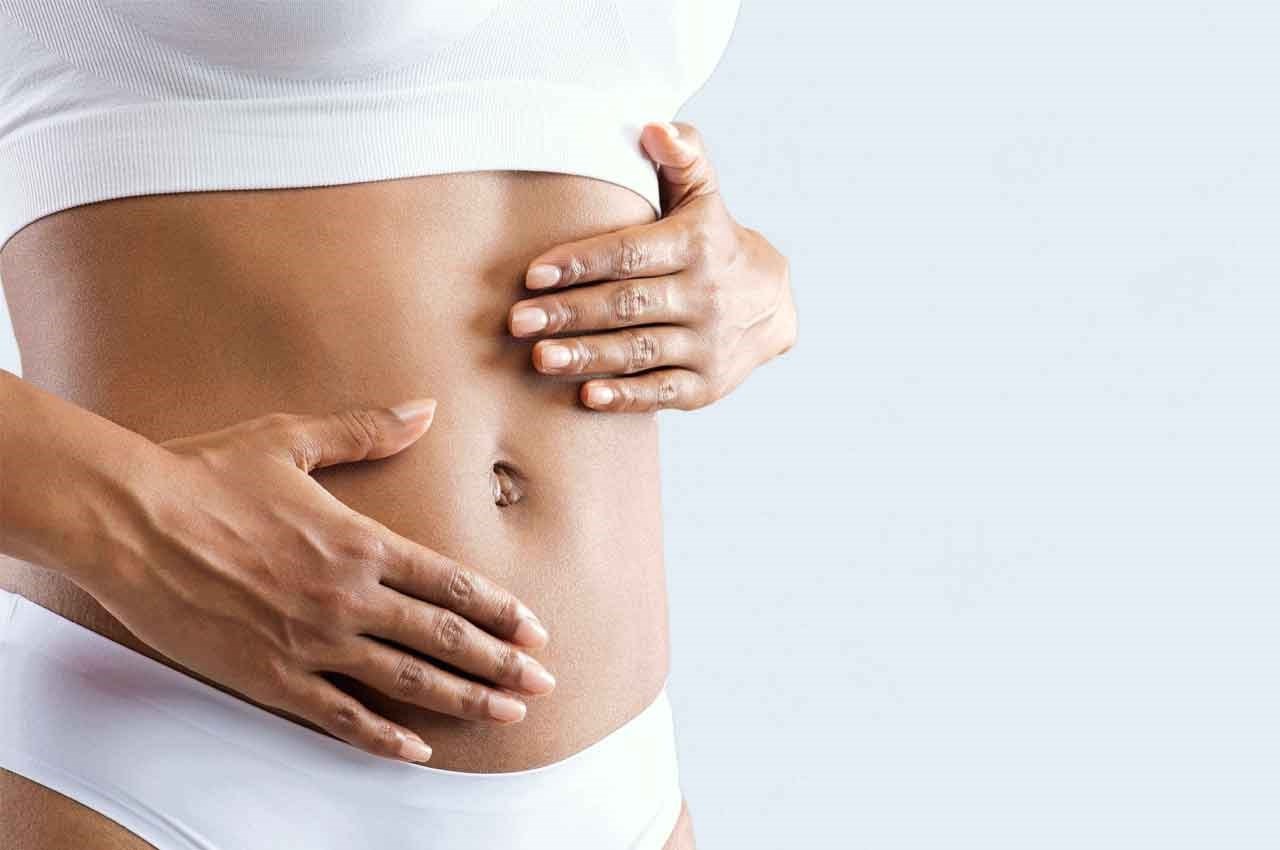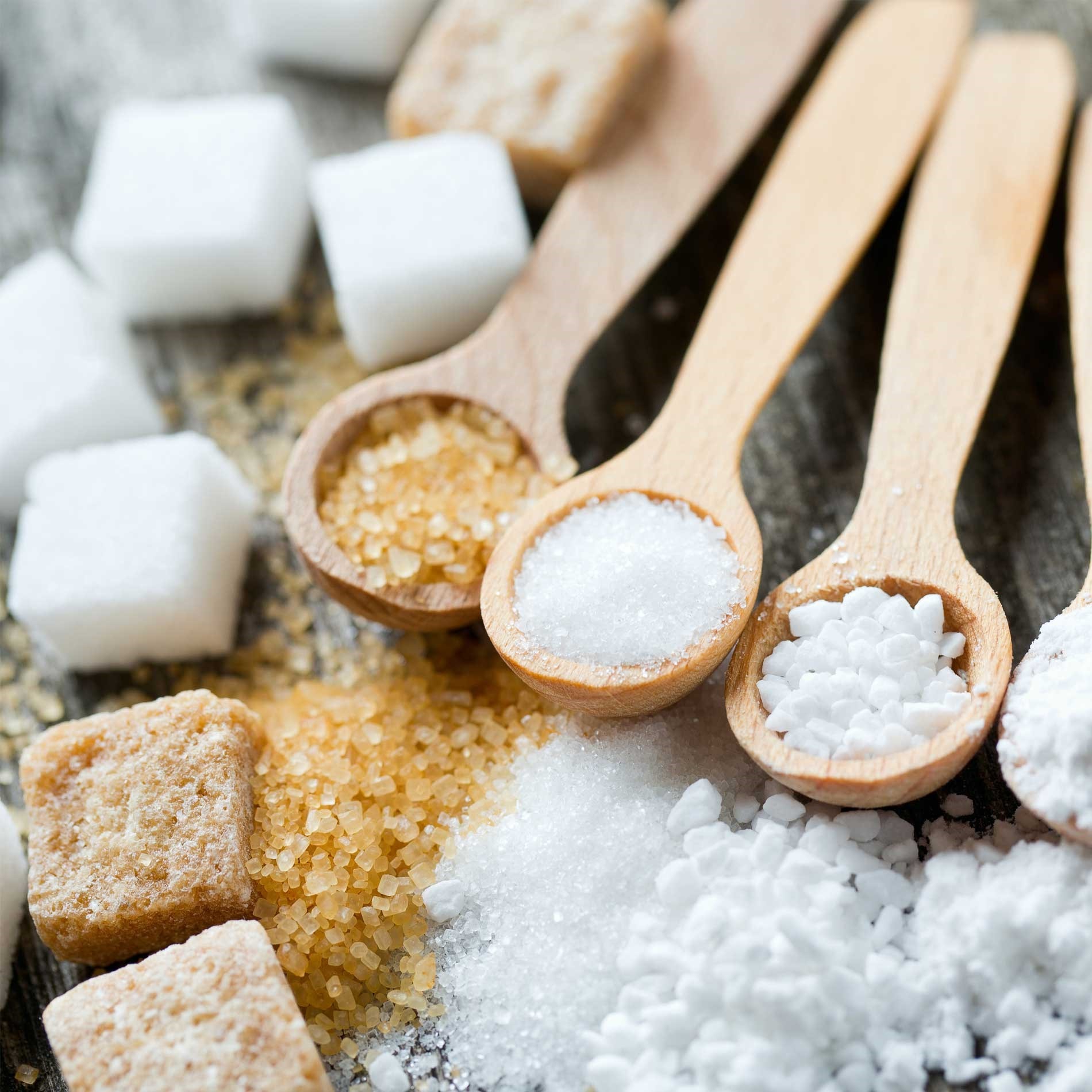We know that good health starts in the gut. In fact, 40 trillion bacteria are working all the time to keep you well! But how healthy is your gut?
Read on to get started on your journey to good gut health: learn more about the signs of an unhealthy gut, how gut health affects more than just your digestion, and which is the best probiotic for gut health.
- The gut microbiome
- Best probiotic for gut health
- Why is gut health important?
- Signs of an unhealthy gut
- 10 ways to improve gut health naturally
The gut microbiome
If you want to fully support your gut, you need to know a little more about how it works.
The gut microbiome is the collective ecosystem of microbes that live in our guts. These microbes are a huge assortment of bacteria, yeast and viruses, unique to each and every one of us. Research on the gut microbiome has taken off over the last few years – we now know more than ever about the best probiotics for gut health.
Find out more about the microbiome in our article: All about the Microbiome.
Gut health, probiotics and the microbiome have become more and more important in the world of wellness over the last few years. Our microbiome today faces many different challenges than it would have faced even just 50 years ago.
Factors in modern day living such as stress, travel and western diets are the biggest threats to the human microbiome, resulting in common conditions including:
- IBS1
- Candida2
- Allergies & Intolerances3
- Autoimmune conditions such as rheumatoid arthritis4 & psoriasis5
This means it’s more important than ever to understand the role of your gut in maintaining your overall health.

Best probiotic for gut health
Unlike foods rich in probiotics, with probiotics for gut health you know exactly how many probiotics you’re taking, and what type of strains are present. Gut health supplements are also super-easy to take, available as capsules, gummies or in a sachet you can mix into cold drinks.
There are hundreds of different types of bacteria living in the gut, not to mention other microbes like viruses and yeasts. As already mentioned, some of these organisms are beneficial, while some at high levels can be harmful and others are commensal with no negative or positive influence.
Some types of beneficial bacterial species we could expect to see in a healthy gut include:
- Bifidobacterium bifidum
- Lactobacillus acidophilus
- Lactobacillus plantarum
As well as these species there are many more different types of ‘good’ bacterial species. Generally, the Bifidobacterium genera reside mostly in the lower intestine whereas the Lactobacillus genera live predominantly in the small intestines.
As there are a whole range of different probiotic strains suitable for gut health it’s important to select supplements with the right strains for you. Research shows that different probiotic strains do different things and the best supplements for gut health are unique to every individual.
For example, Lactobacillus acidophilus Rosell-52 has been shown to help improve symptoms of abdominal pain and distension9, Lactobacillus acidophilus NCFM® has been shown to help support bloating symptoms7,and Lactobacillus rhamnosus Rosell 11, has been researched to support gut health whilst taking a course of antibiotics8.
Why is gut health important?
Every organ within the gut, from the stomach to the anus, has a unique function that helps to keep your gut (and you) going regularly.
The key functions of your gut are:
- Taking in food
- Moving food through the digestive system
- Extracting and absorbing energy and nutrients
- Expelling the remaining waste as faeces (poo)
Good digestion has a profound effect on your overall health, and the gut microbiome plays a key role in this. A healthy microbiome contains lots of good bacteria, also known as probiotics, which confer different health benefits.
Probiotics help to break down and digest food, support the absorption of nutrients and discourage 'bad’ bacteria, known as pathogens, that can take over and stop the gut from functioning correctly.
Find out more about probiotics in our article: What are probiotics?
Signs of an unhealthy gut
We should point out that everybody has some pathogenic bacteria in their gut and this is completely normal. However, an imbalance of good and bad bacteria, known as dysbiosis, could result in an unhealthy gut microbiome. Read more about this in What is dysbiosis?
Symptoms of imbalanced gut health include:
- Gas, wind or bloating
- Acid reflux
- Upset stomachs
- Sugar cravings
- Bad breath
- Food allergies or intolerance
- Trouble sleeping
So, if you suffer from one or more of the above symptoms, it’s probably time to join the millions of people prioritising a happy gut full of good bacteria.
Don’t forget that over 70% of your immune system resides in the gut6, so it’s worth supporting your gut in small, easy ways to keep you and yours well on an ongoing basis.
10 ways to naturally improve the health of your gut
If you're short on time, we've put together a quick checklist below, giving ten easy ways to improve the health of your gut:
- Drink plenty of water – stay well hydrated by drinking plenty of water. Water helps to break down the food you eat, allowing waste to pass more easily through the intestine and boost nutrient absorption as well as preventing constipation.
- Chew your food well – digestion starts in the mouth and chewing food well is an important part of improving gut health naturally.
- Eat fibre-rich foods – good bacteria feast on foods such as onions, bananas, broccoli, kale and beans, which contain a type of fibre known as prebiotics.
- Limit sugar intake – sugar promotes the growth of bad bacteria by acting as a food source. This gives less opportunity for good bacteria to flourish.
- Limit intake of processed foods – there is less nutrition and natural benefits for the gut because their natural state has been changed. Processed foods can be difficult to digest, making bad bacteria prone to multiply.
- Try fermented foods – these good gut health foods, such as kimchi, kombucha and sauerkraut, contain naturally occurring probiotic bacteria.
- Exercise regularly – bowel motility, particularly in those prone to constipation, is helped by regular exercise. Regular exercise is also associated with greater microbial diversity.
- Drink alcohol and caffeine in moderation – alcohol irritates the digestive tract and can alter bacterial balance. Caffeine increases stress hormones which can lead to anxiety-induced gut symptoms in some people.
- De-stress and sleep well – there are direct links between the gut and brain. Stress and tiredness can really affect your gut health.
- Take a probiotic supplement – make your life easier and improve levels of good bacteria by taking a gut health supplement in the form of a daily probiotic. The best probiotic for gut health will contain probiotic strains specfic to your health needs.
References
- C. Casen, H. C. Vebø, M. Sekelja, F. T. Hegge, M. K. Karlsson, E. Ciemniejewska, S. Dzankovic, C. Frøyland,R. Nestestog, L. Engstrand, P. Munkholm,O.H.Nielsen, G.Rogler, M.Simre L.€Oh. (2015). Deviations in human gut microbiota: a novel diagnostic test for determining dysbiosis in patients with IBS or IBD. Alimentary Pharmacology and Therapeutics. 42 (1), 71-83.
- Harry Sokol, Valentin Leducq, Hugues Aschard, Hang-Phuong Pham, Sarah Jegou,Cecilia Landman, David Cohen, Giuseppina Liguori, Anne Bourrier ,Isabelle Nion-Larmurier (2016). Fungal microbiota dysbiosis in IBD. Gut. 66 (6), 1-10.
- William Zhao BS, Hsi-en Ho MD, Supinda Bunyavanich. (2019). The gut microbiome in food allergy. Elsevier logo Journals & Books Annals of Allergy, Asthma & Immunology. 122 (3), 276-282.
- Vaahtovuo J, Munukka E, Korkeamäki M, Luukkainen R, Toivanen P (2008). Fecal Microbiota in Early Rheumatoid Arthritis. The Journal of Rheumatology. 35 (8), 1500-1505.
- Linsheng Huang, Renyuan Gao Ning YuYefei, Zhu Yangfeng Ding. (2019). Dysbiosis of gut microbiota was closely associated with psoriasis. Science China Life Sciences. 62 (6), 807–815.
- G Vighi, F Marcucci, L Sensi, G Di Cara, and F Frati. (2008). Allergy and the gastrointestinal system. Clinical & Experimental Immunology. 153 (3), 3–6
- Steven E. Faber. (2003). Comparison of probiotics with antibiotics to probiotics alone in treatment of diarrhea predominant IBS (D-IBS), alternating (A-IBS) and constipation (C-IBS) patients. Gastroenterology. 124 (4), A687–A688.
- Malkanthi Evans, Ryan P. Salewski, Mary C. Christman, Stephanie-Anne Girard and Thomas A. Tompkins . (2016). Effectiveness of Lactobacillus helveticus and Lactobacillus rhamnosus for the management of antibiotic-associated diarrhoea in healthy adults: a randomised, double-blind, placebo-controlled trial. British Journal of Nutrition. 116 (1), 94-103.
- Messaoudi M, Lalonde R, Violle N, et al. Assessment of psychotropic-like properties of a probiotic formulation (Lactobacillus helveticus R0052 and Bifidobacterium longum R0175) in rats and human subjects. Br J Nutr. 2011;105(5):755-764. doi:10.1017/S0007114510004319
- Kazemi A, Noorbala AA, Azam K, Eskandari MH, Djafarian K. Effect of probiotic and prebiotic vs placebo on psychological outcomes in patients with major depressive disorder: A randomized clinical trial. Clin Nutr. 2019;38(2):522-528. doi:10.1016/j.clnu.2018.04.010
Popular Articles
View all Gut Health articles-
Gut Health20 Jun 2025
-
Gut Health25 Mar 2025
-
Gut Health07 Nov 2023


